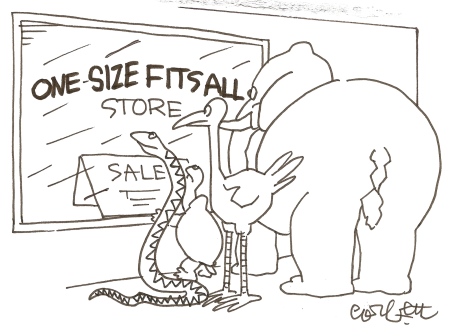 John Steinbeck famously said “In America…the poor see themselves not as an exploited proletariat but as temporarily embarrassed millionaires.”
John Steinbeck famously said “In America…the poor see themselves not as an exploited proletariat but as temporarily embarrassed millionaires.”
I would substitute “The poor” with “Self-Publishers.” As if every author self-publishing is automatically a Hugh Howey in the making. Self-publishing isn’t a get rich quick scheme. For some it is, for most it isn’t.
Which means what worked for Hugh Howey will not necessarily work for every single writer. Recently on iO9 there was a post Why This Bestselling Author Decided To Start Self-Publishing. Often these kinds of posts are rallying cries for self-publishing – see, even the big wigs are doing it! But the operative word in that title is “Bestselling.” She’s already bestselling, so obviously self-publishing will be an easier route for her. For some, it makes sense to not self-publish at all, in order to build up the type of fan base she built up so she can now self-publish. There is no one-size-fits-all credo for self-publishing.
In a fairly terrible recent post in The Guardian about the costs of self-publishing there was an uproar in the comments about how the figures were overblown. They were. But there were also comments like this one.
Since we are on the topic of editors as gatekeepers, consider the case of John Kennedy Toole and “A Conspiracy of Dunces.” Toole’s wikipedia entry notes that he managed to get his manuscript into the hands of a top editor, Robert Gottlieb, who demanded several revisions, but decided the book was “pointless” and rejected it. After Toole’s death his mother took up the quest to have the book published. Seven more publishers rejected it. She then badgered, bordering on harassment, author Walker Percy to read it. He read it to get her to leave him alone, but instead discovered “it was so good.” Even with Percy singing its praises the book received nothing but rejections over the next few years. In the end, Louisiana State University Press published it in 1980 and in 1981 John Kennedy Toole was posthumously awarded the Pulitzer Prize for fiction.
Editing is pure subjectivity pretending to be omniscience. Gatekeepers.
Who edited Van Gogh?
Who edited Picasso?
Who edited Cartier-Bresson or Winogrand?
and most importantly,
Who edited James Joyce?
Writing is art. Artists edit themselves.
What? Are we reaching a point where self-publishers are so high on their sense of power that they don’t need help at all? It should go without saying, but most writers aren’t the next Joyce.
(Regardless, Joyce had an editor, so did Toole. Picasso had curators, etc.).
Paid Reviews
The point of this post is somewhat self-serving because in the comments of the Guardian piece, there is also the mantra that you should “never buy reviews.”
SPR charges for reviews and there are many reasons we do this. To start, you need to differentiate between places like Buy Amazon Reviews, which sells 5-star reviews in bulk, and a place like SPR that offers an objective review. Some claim a paid review can’t be objective. If this were the case, there wouldn’t be instances of people telling us to not publish the review because it was too critical. The fact that we pay our reviewers means they’ll take more time to assess a book, not less.
David Gaughran, a friend of this site, comments on the Guardian post echoing the sentiment, and wrote his own (very useful) post Starting from Zero, which says
Get 10-20 reviews as soon as you can. This will take a while, but it opens up a world of possibilities in advertising and adds social proof. Don’t buy any, obviously. There are lots of legit places to get reviews such as Goodreads and LibraryThing. Be willing to give anyone a free book in exchange for a review. Only ever request an honest review, and don’t offer anything other than a free book in exchange for same. Also don’t worry about cannibalizing your sales; you are building something much bigger.
For many, many writers getting “10-20” reviews is a steep hill to climb. There is a huge list of books sitting on Amazon that have no reviews and no sales. These aren’t necessarily bad books, but they haven’t been able to get any attention. If you’ve sent out free copies to 100 blogs and gotten a couple hits back, then you have to look elsewhere. Additionally, having a review in the bank can help get reviews from other sources. It’s much harder to have a reviewer bite on a book that has no prior reviews.
There are books up for 5 years (self-published or not) that have 10 or fewer reviews. Literary fiction, for one, is very hard to get reviewed. There are many commercial genre titles that aren’t receiving reviews either. Every book is competing with the 2000 other books published by Amazon daily. There literally aren’t enough book readers for each of those books to get 10-20 reviews. Every lit blog is getting hundreds of submissions. Some writers need help getting started with their promo campaign, or want to pad their existing marketing materials.
It seems a bit black and white to say writers should “never” do something in a self-publishing ecosystem that comprises millions of books. Ironically, it’s a kind of gatekeeping to say there’s one way to market a book. Writers certainly can determine if there are better ways to spend their money, but they can’t quite determine that for all other writers.
Get an Editorial Review | Get Amazon Sales & Reviews | Get Edited | Publish Your Book | Enter the SPR Book Awards | Other Marketing Services






















It’s ridiculous to think that artists and writers do not get edited. Of course they do. Any art gallery will be given a portfolio to “edit” and display as they think relevant.
Wikipedia tells us, for example, “John Szarkowski, the Director of Photography at New York’s Museum of Modern Art, became an editor and reviewer of Winogrand’s work. Szarkowski called him the central photographer of his generation.”
Certainly Joyce is edited every edition because he was a terrible self-editor, notoriously so.
Toole killed himself after two years of editing under the watch of Simon and Schuster’s Robert Gottlieb, who ultimately rejected his work.
So an editor of course is essential. (Maybe not to the point of suicide!)
What many inexperienced writers — as the person you quote obviously is — do not realize, I think, is that fiction books tend not to advertise the editor on their book, whereas non-fiction books do. But rest assured, all books coming out of publishing houses are edited many times, extensively. Apparently Tolkien is edited every new edition, and they still find proofreading errors to this day. It’s a bit of a legend in editing circles because he was so contrary and intricate about his editing.
High time those talking about gatekeepers started laying off the gatekeeping themselves.
It’s all subjective and all about the opinion of those that ‘edit’ or decide to publish or not. Its the same with the final reader, some will like an author and his or her style, others will dislike that same author. Who can be the gatekeeper to that? And is it truly the author’s style being judged is some editor has come along and over edited and played with the sentence construction?
A friend of mine was told that he needed to alter his novel because it was cross-genre, but doing this removed the theme that made it original and made it just another thriller. He did this, then put it back and went with another publisher who loved it.